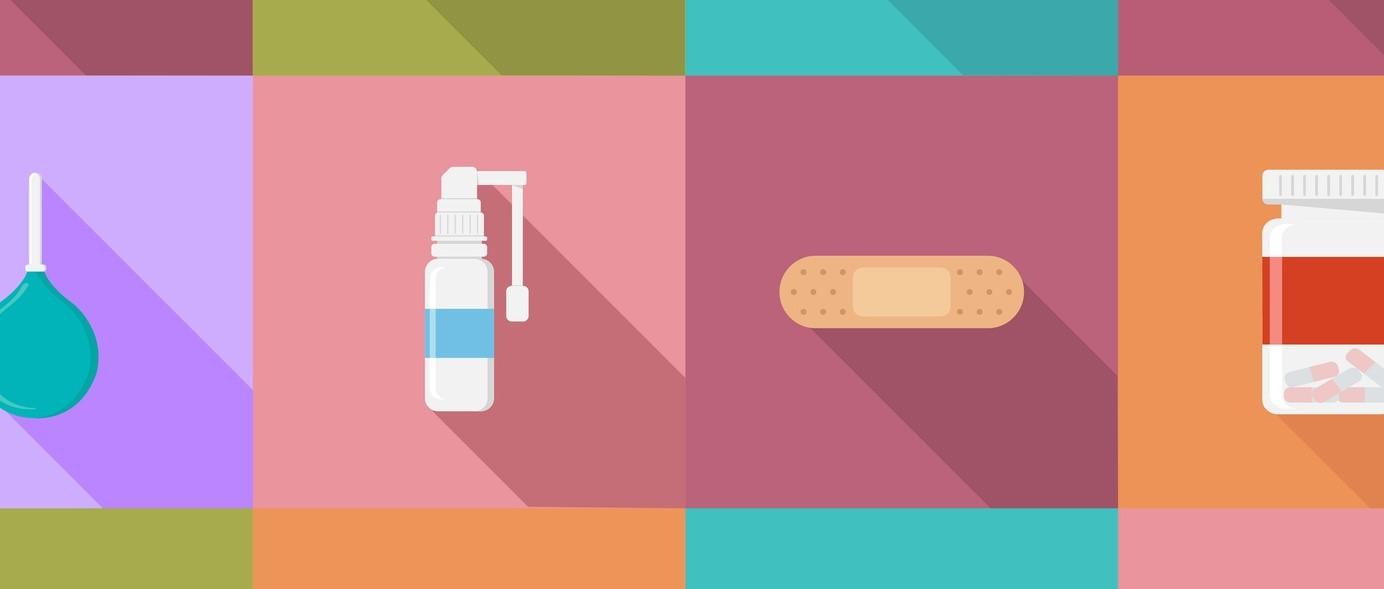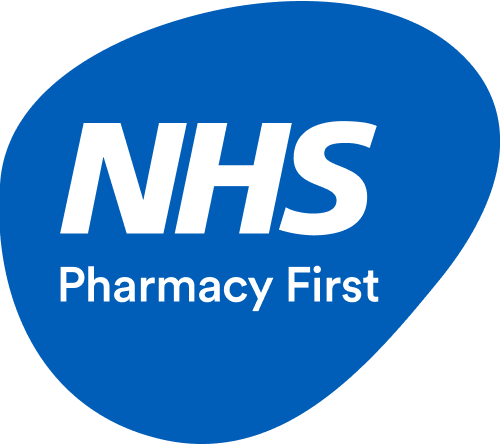
Pharmacy First - getting the most from your pharmacist
Peer reviewed by Sima Jassal, MPharmLast updated by Lawrence HigginsLast updated 24 Sept 2024
- DescargarDescargar
- Compartir
It's World Pharmacy Day and we explain when you can visit a pharmacist to receive advice and treatment for some simple illnesses, instead of going to see your doctor. Read here about the NHS Pharmacy First scheme, what conditions you can go directly to your pharmacist about, and what else you need to do.
Patrocinado
Reserve una consulta gratuita en línea de NHS Pharmacy First
A través de NHS Pharmacy First, My Local Surgery ofrece consultas privadas en línea rápidas y gratuitas con un farmacéutico del NHS para obtener un diagnóstico rápido y recetas para una serie de enfermedades leves.
Pueden ayudar con afecciones comunes en el marco del plan Pharmacy First del NHS, con medicamentos recetados, entregados gratuitamente.

En este artículo:
Seguir leyendo
What is Pharmacy First?
The Pharmacy First scheme means you can go and see a pharmacist about several minor illnesses and conditions you would previously have had to see your GP about. You can visit your pharmacist for a consultation and they will treat you and prescribe medicines if necessary. If your condition is more serious you will be referred to a GP or hospital.
Your pharmacist will asses your suitably for treating you and may refer you to another health service if they feel it's more appropriate.
Selección de pacientes Información sobre medicamentos

Tratamiento y medicación
One in four adults prescribed addictive medications
A review has found that more than a quarter of adults in England received at least one potentially addictive drug last year.
por Milly Evans

Tratamiento y medicación
Tratamiento de la drogodependencia
Dependence on a substance means that you need that particular substance to function normally. Drug dependence can result from prescribed drugs, recreational drugs or medicines available over the counter. Drug dependence is a treatable medical condition. There are a number of medicines that your doctor may prescribe to help with drug dependency. The type of medicine prescribed depends on the drug you are dependent on.
por la Dra. Hayley Willacy, FRCGP
What conditions can you see your pharmacist about?
Under Pharmacy First, pharmacists can treat and prescribe medicines for seven conditions. These are the conditions, and at what age, you can see the pharmacist about:
Earache - 1 to 17 years.
Impetigo - 1 year and over.
Infected insect bites - 1 year and over.
Shingles - 18 years and over.
Sinusitis - 12 years and over.
Sore throat - 5 years and over.
Uncomplicated urinary tract infections - women 16-64 years.
Anyone not within these age ranges should see their GP.
There are many other conditions which you can also see your pharmacist about rather than your doctor. These include:
Aches and pains - such as, back pain, headache and period pain.
Accidents - such as, sprains, minor cuts, and grazes
Colds, flu and other infections - such as, cough, congestion, fevers and/or temperature.
Ear care - such as, ear wax.
Eye care - such as, conjunctivitis, styes.
Hay fever - which is not controlled by standard over-the-counter treatments.
Rashes.
Skin problems - such as, athlete’s foot, cold sores, or mild eczema or psoriasis.
Stomach aches - such as, constipation, diarrhoea, or indigestion.
Seguir leyendo
How to see your pharmacist
More than 10,000 pharmacies across the UK are part of the scheme - that's more than 9 out of every 10. Generally, you can just walk in to your closest or preferred one and ask for an appointment - or they will see you straightaway if there is availability. If you'd prefer, you can call and ask for a video consultation with the pharmacist.
You may also be referred to a pharmacy appointment from:
NHS 111 - online, telephone and the NHS App.
Integrated urgent care clinical assessment services.
Urgent treatment centres.
A&E.
999.
Su médico de cabecera.
To find out your nearest pharmacy and check if it is part of the scheme go to NHS pharmacy finder or just walk in. If you have difficulty leaving your house or have limited time, several pharmacies also offer free online consultations under the Pharmacy First scheme - including high street chains such as Lloyds or online service My Local Surgery (MLS).
What will happen at your pharmacist appointment
Your consultation with the pharmacist will always be confidential and in a private place. The pharmacist will ask you questions about your health - they may need to know about your previous medical history, any allergies, any medicines you are taking, and the symptoms you are experiencing. They will ask you before checking any medical records.
For some conditions, the pharmacist may ask to have a look at what is wrong - for instance, if you have an earache, they may use an otoscope to look into your ear. The pharmacist will not use diagnostic tests to check for specific conditions - such as checking a pee sample for a UTI or swabbing your sore throat.
The pharmacist will recommend the best course of action to treat your condition - this could be that your illness is best to run its course, they may prescribe medication such as antibiotics. If your condition is more severe they may refer you to another health service or professional.
The notes of your consultation will be added to your medical records.
Seguir leyendo
What else can you see a pharmacist about
As well as the conditions covered under Pharmacy First and other minor illnesses, there are many other issues and topics your pharmacist will be able to help you with, these include:
Advice on using and disposing of medicines.
Blood pressure checks.
Chlamydia screening and treatment.
Cholesterol and blood sugar testing.
Drug use - including needle and syringe exchange schemes.
Help on how to manage your weight.
Some vaccinations.
If your symptoms last for more than two weeks or do not get better you should see a GP. If your symptoms are severe and you are worried, call 999 or go to your local A&E.
Historia del artículo
La información de esta página ha sido revisada por médicos cualificados.
Fecha de la próxima revisión: 24 de septiembre de 2027
24 Sept 2024 | Última versión
1 Feb 2024 | Originally published
Autores:
Lawrence Higgins

Pregunte, comparta, conecte.
Explore debates, formule preguntas y comparta experiencias sobre cientos de temas de salud.

¿Se encuentra mal?
Evalúe sus síntomas en línea de forma gratuita